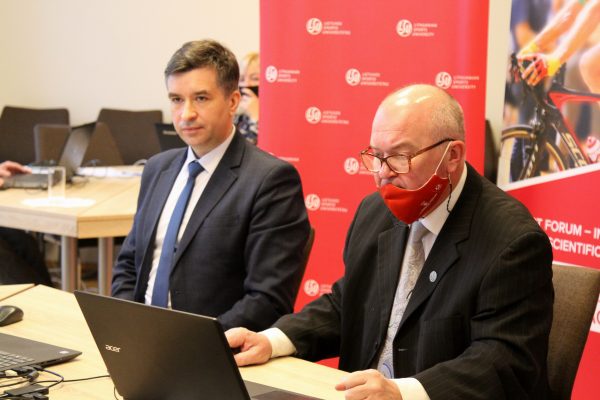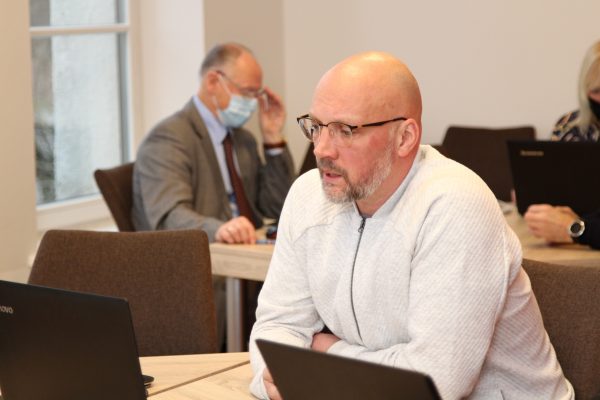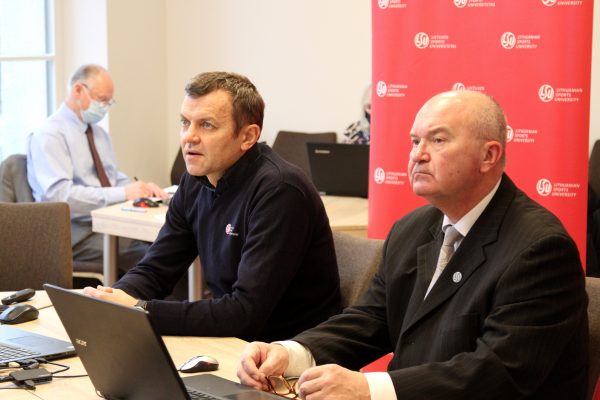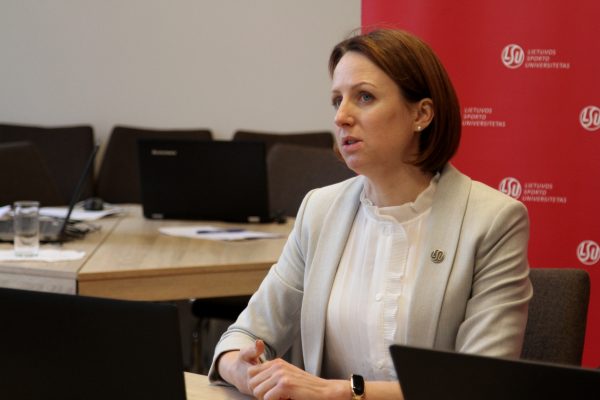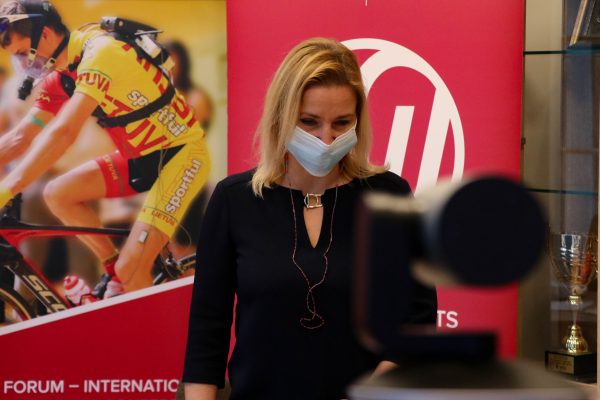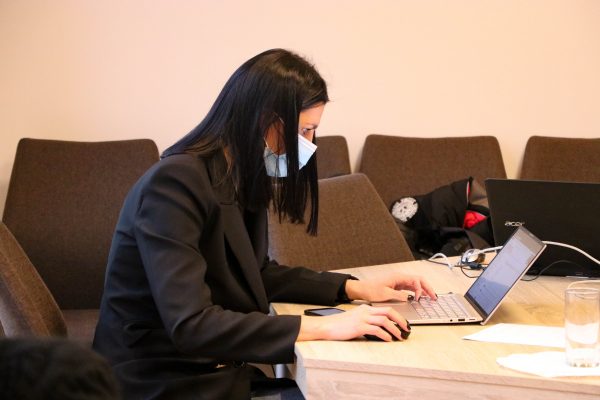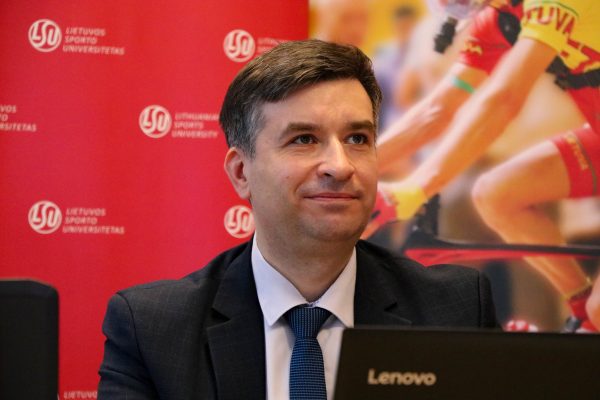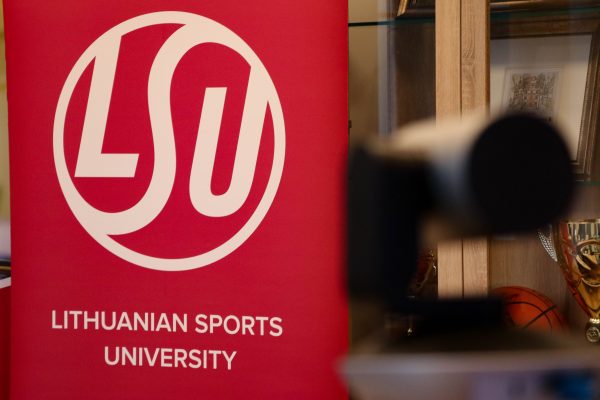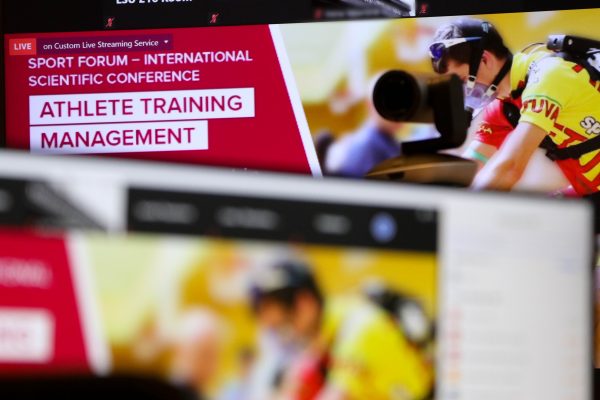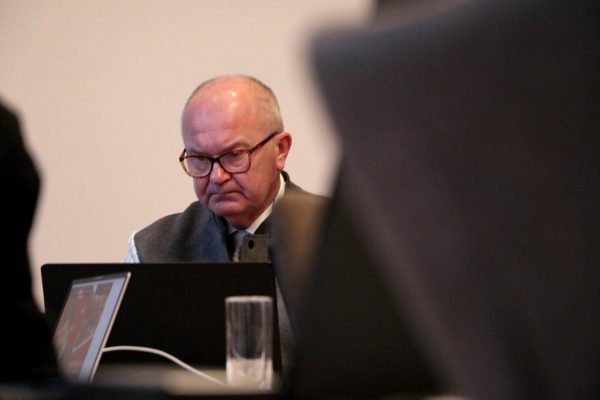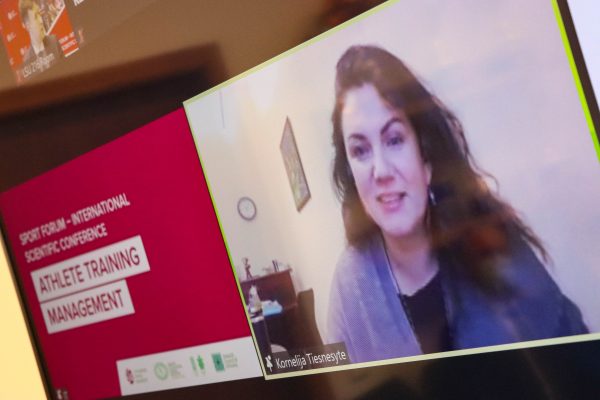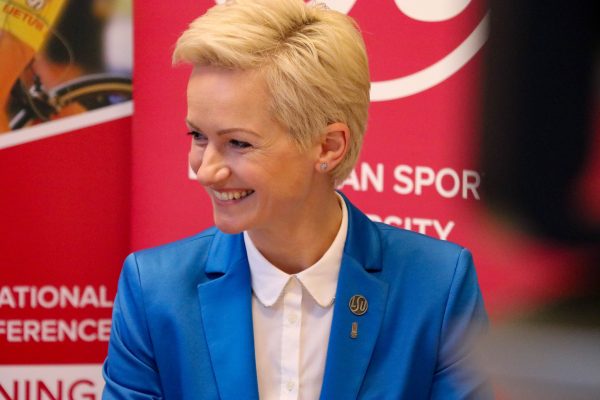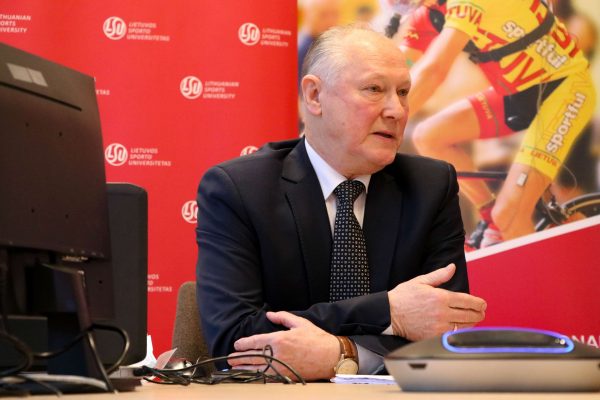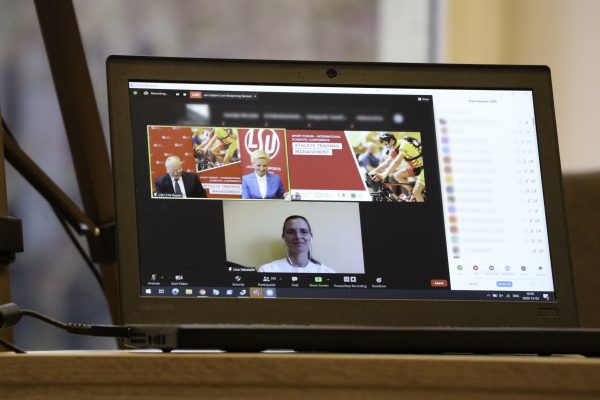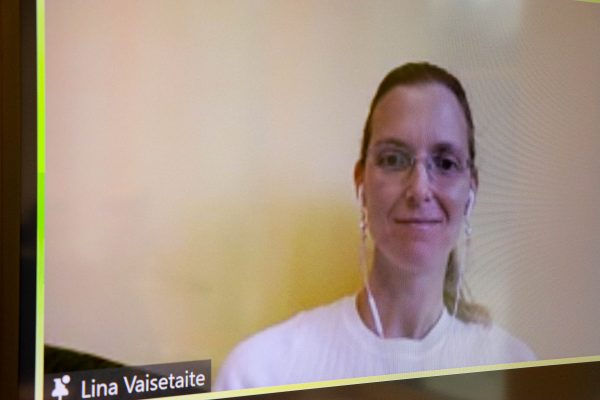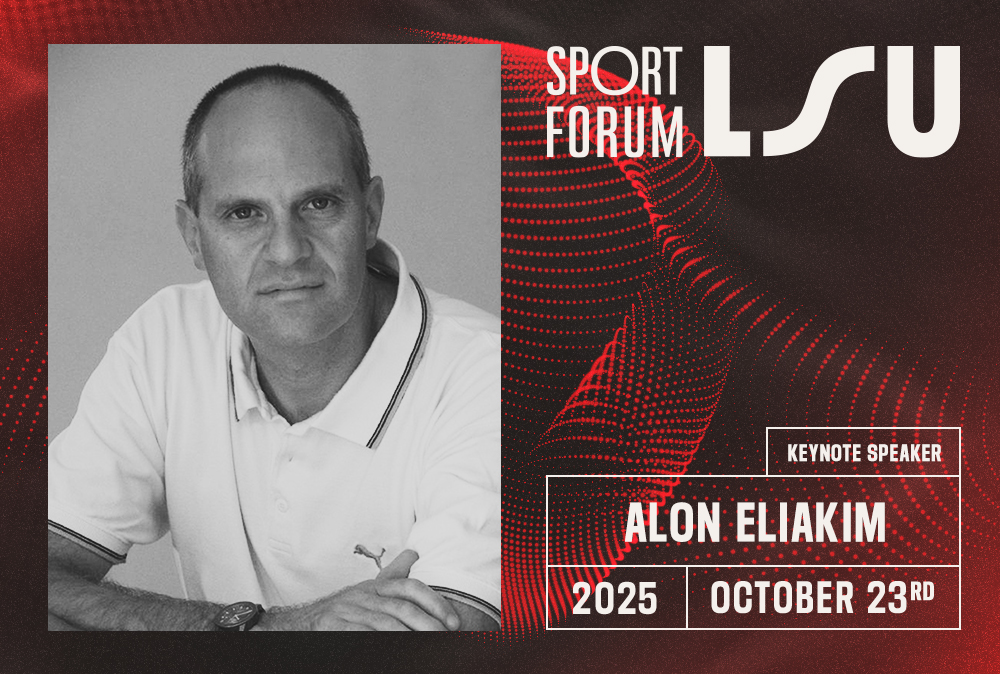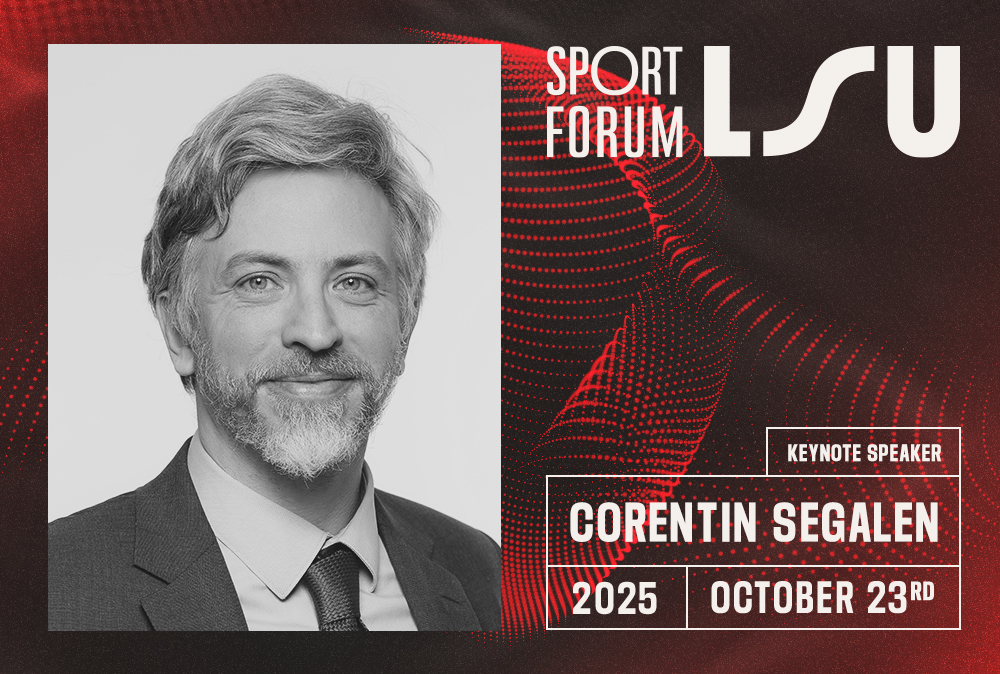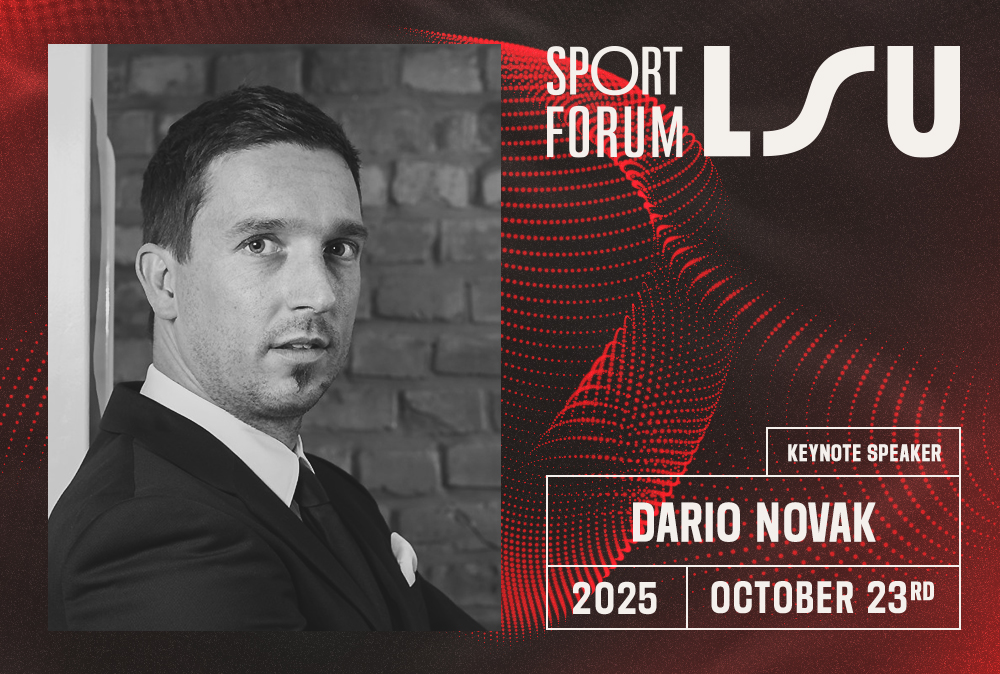With the news that the Tokyo Summer Olympics will probably take place, sports scientists are starting to discuss new opportunities to help athletes properly prepare for the upcoming major sporting event. The pandemic has revealed more athlete health-related issues and innovations that have been relevant not only to the beginners or professional athletes for many years, but also to the sports elite around the world.
“We are glad that sports scientists continue to work intensively, because sport will never disappear from this world, despite any pandemics,” emphasized the importance of cooperation Daina Gudzinevičiūtė, President of the National Olympic Committee of Lithuania (LTOK).
The scientists discussed innovations and challenges for athletes at the international conference “Athlete Training Management” organized by Lithuanian Sports University (LSU). According to LSU Rector Prof. Diana Rėklaitienė, sports scientists have joined forces to prepare the athletes for the Olympics and shared their experiences with the specialists working with the Croatian national football team and the Finland women’s national ice-hockey team, that has won several medals in the World Women’s Hockey Championships. Discussions on the psychological condition of athletes as a significant part of the preparation, doping and scientists’ recommendations for giving up a lot of food supplements took place.
“Although there is a pandemic situation in the country, we try to do everything as well as possible. This is a difficult period we have to go through. Our athletes, despite the changed conditions, continue to exercise, coaches are looking for ways to be more creative, scientists are continuing research that will help athletes not only achieve best results, but also maintain motivation,” said Prof. D. Rėklaitienė.
Athletes’ mental health during the COVID-19 pandemic and preparation for the exhausting heat of Tokyo
Lina Vaisetaitė, Program Manager of the LTOK Sports Directorate, stated that like all people, athletes experience greater mental health problems during the pandemic.
“It is very important to identify these problems and seek help in a timely manner. 5 to 35 percent of elite athletes experience mental health problems every year. They can be influenced by the constant pressure of those around them to achieve the best possible results, a busy training schedule, a strict regime, being away from family, problems in personal life, or an unexpectedly interrupted sports career. Mental health problems can be cured through psychotherapy, psychologist consultations or hospitalization,” said L. Vaisetaitė. She emphasized that in the context of a coronavirus pandemic, it is particularly difficult for athletes to prepare not only physically but also psychologically. Therefore, the role of a sports psychologist is particularly important in the athlete’s training cycle.
The scientists also discussed athletes’ preparations for the Tokyo Olympics, given the likely high air temperature. The highest air temperature ever set during the Games is 41.1 degrees. Thermal injuries are likely at such high temperatures. The scientists shared data and methods on how to prepare for competitions without the athlete tiring out or compromising their mastery to acclimatize to competition and environmental conditions. Clear temperature behaviour decisions will be shared with athletes while living, travelling, training, and competing in the heat.
Individuality is very important in team sports as well
Dr. Luka Milanovic, doctor at the University of Zagreb in Croatia, and Arvaja Markus, lecturer at the Haaga-helia University of Applied Sciences in Finland, point out that not only individual sports but also team sports are moving towards personalized support for the athlete. It is related not only to the already developed concepts of Sports Intelligence that support the athlete’s
physical and psychological health, but also to new methods that are joined by biomedicine, which has a significant impact on the results. According to the scientists, their attention is particularly focused on the athlete’s individualized diet.
“Before the World Cup, we usually only have 6-8 weeks to prepare. It is difficult to improve capacity in such a short time, so it is very important to constantly monitor the process. In preparation for the championship, we need to eliminate everything that is unnecessary. A basketball or football team is like a bundle of different balloons that can only rise to the top when we throw away everything that is unnecessary. Sometimes players have the same problems, but their solutions are always different, so individual help is very important,” said L. Milanovic, who works at the headquarters of the coaches of the Croatian football team, the finalist of the World Cup. He also emphasized one of the most important principles of his work: “Let’s attack the problem, not the person”.
“We pay a lot of attention to individual training, we work with each athlete individually, explain the needs and ask how we, coaches, can help. Even the night before the competition, our players receive questionnaires and have to provide answers on how they feel. It is important that everyone feels psychologically safe, not afraid to speak up when something is wrong,” said A. Markus, who works for the world vice-champion Finnish women’s hockey team.
Dietary supplements have more risks than benefits
The use of dietary supplements was the subject of separate discussion. The presentation was delivered by Dalia Malkova, a long-time teacher at LSU, now working at the University of Glasgow in Scotland.
Scientists claim that there is often a lack of evidence to support the benefits of dietary supplements, making a balanced and special individualized diet especially important not only in an athlete’s daily life, but also during competitions trying to achieve good results.
“A common problem in Lithuania is dietary supplement advertising, which can be misleading. There have been several cases in Lithuania where athletes were disqualified because prohibited substances had been found in the supplements they used. Experts from the International Olympic Committee (IOC) recommend using the supplement in cases where a nutrient deficiency is diagnosed and using only a quality food supplement, one that does not contain prohibited substances, its manufacturer is known and the quality of which has been verified by tests. The benefits of antioxidant supplements are also questionable. Norwegian researchers conducted a study with vitamins C and E and found that there are no positive changes in the performance of athletes. So far, there is no evidence that supplements would be useful for elite athletes,” said LSU Professor Aivaras Ratkevičius.
Doping remains the most pressing problem in sport
Even with the emergence of effective innovations in athletes’ nutrition and physical fitness, the world of sports is struggling with the issue of doping. Surveys show that a lot of athletes would still choose to use prohibited substances.
“Sport is not an exception, there is corruption in it, too. Doping is prevalent among 50 percent of professional athletes and 25 percent of the beginners. As soon as in 2023, we hope to have a virtual reality education program against doping,” said Vassilis Barkoukis.
The professor at Aristotle University of Thessaloniki explained to colleagues the methods of recognizing a fraudulent team and stressed that doping was not only a matter of fair sports competitions, but above all the issue relating to the health of athletes.
“Twenty years ago, there was a survey conducted and athletes were asked if they used doping if they knew they wouldn’t be caught. As many as 98 percent gave a “Yes” for an answer. More than half of the respondents also gave a positive answer to the question “Would you use doping if it contributed to victory in every competition for 5 years, but ended in death?” said Jūratė Stanislovaitienė, the head of the LSU research team of athletic training.
Scientists from Lithuania, Greece, Italy, Croatia, Finland, Germany and Scotland delivered presentations at the conference organized by Lithuanian Sports University, which was held remotely due to COVID-19.

